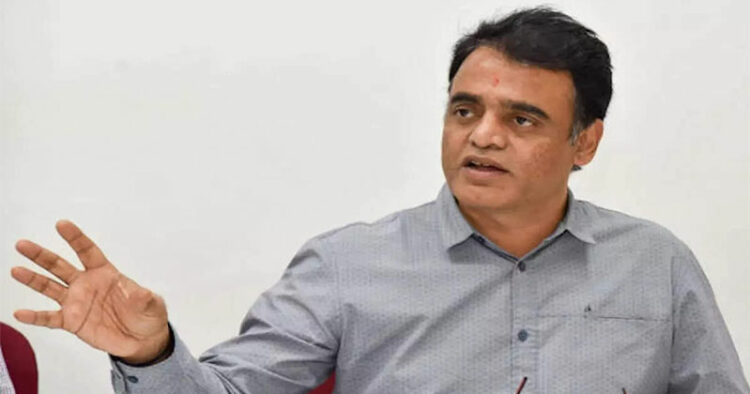One way the country can learn from Karnataka is the way it handles “Education” and its implementation of the NEP 2020. Prafulla Ketkar, Editor Organiser, had a conversation with Dr Ashwathnarayan CN, Minister for Higher Education, on the alleged “politicisation” and “saffronisation” of education and the current debate on imposition of Hindi. excerpts:
Karnataka is leading the way in its successful implementation of the New Education Policy 2020. But it’s still grappling with accusations of Hindi imposition etc.
Right kind of reforms were much needed in Education. To tackle biases, we had a conversation with intellectuals from all religious groups and even specially-abled groups to include everyone. Lot of consultations and discussions happened. The Government has given a lot of freedom in the implementation making it a true example of maximum governance minimum Government. We need to nurture critical thinking if the country needs to emerge as a global leader in the 21st century. If we have to become a Vishwa Guru, we need to integrate our regional and cultural knowledge with the world’s. People are opposing it without even understanding it, calling it “Hindutva” agenda, “saffron agenda”. When it comes to History, yes, we are going to make some changes, and set it right, as it needs to be. Overall, it’s a great NEP and would change the way education was conducted in the country.
Karnataka is one of the first states to adopt education in the mother tongue, Kannada. Even then you are being accused of promoting a “Hindi agenda”. Having said that, how difficult was it to create content, especially for technical courses in the mother tongue? We hear even some engineering colleges are adopting Kannada as a teaching language. What has this process been like?
This controversy over Hindi has been created by Congress. We have always believed in the preservation and conservation of indigenous culture and languages. So, we are giving a choice to the students to even answer the exam in a language that they are comfortable in.
Besides their mother tongue, they can write in either a choice of international or national language and mix it up. We are giving the choice to students to study what they want; in the language they want. This choice is a big enabler and was missing before.
How did you go about creating content, especially for technical subjects, in the mother tongue?
Besides using technology for translation, we have used a vast pool of human resource. A lot of Kannada teachers have helped create Kannada content for engineering and other professional and technical courses. Karnataka also has a great tradition of the Indian Knowledge System—right from governance and politics to culture and infrastructure.
Is the new NEP assimilating that in education? Can that knowledge be contextualised for contemporary times? Like the Chanakya university…how far will it promote the Indian Knowledge System?
We have tried to digitalise all the knowledge available of past civilisations and also trying to simplify it. This is an ongoing process and will need the participation of people from all sects and walks of life –which is welcomed and as all voices should be included. Learning is not in isolation and can’t be exclusive to one geographical place.
But when it comes to electioneering, and Karnataka will soon go into elections, one has to highlight their achievements. If you had to tell the first-time voters of Karnataka the top achievements of the new system of Higher Education, what will they be?
A lot of students come not only to learn but also be able to earn a livelihood. For the first time this alignment between learning and being able to get a job in an industry is happening. Also, education is focusing on an overall, wholesome development of the student. We are also encouraging institutes to create an atmosphere that enables questioning, debating and discussion.
How successful are you with that? As institutions are so used to following the instructions that came from UGC, how are you helping them take more initiative?
It is definitely a challenge and change will take place gradually—the entire education system has to become student centric. We are trying to build capabilities of the students that will enable them to earn a livelihood. We are organising a programme called Yuva Karnataka – where we are going to showcase the positive changes brought on by the NEP. We want to make education employable, and hopefully working successfully in that direction.
Watch the full interview here:




















Comments